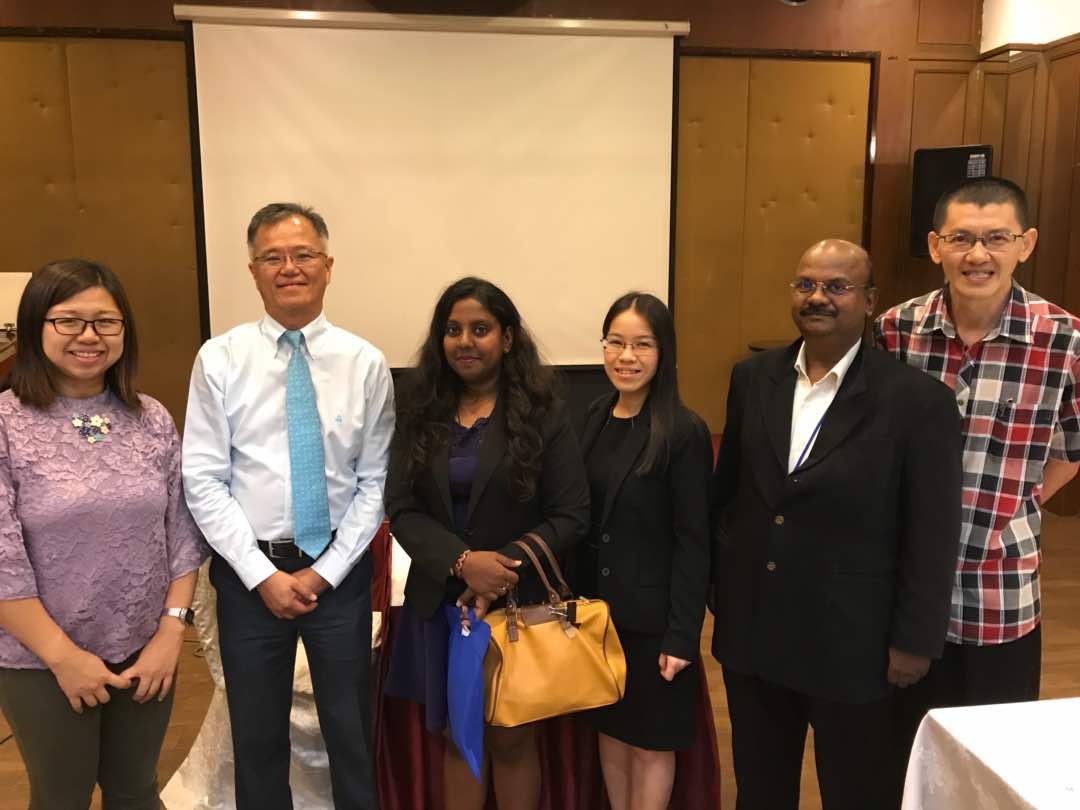Corporate Liability Provision is the latest amendment that has been introduced in the Malaysian Anti-Corruption Commission Act 2009 (MACC Act 2009). Corporate Liability Provision criminalizes the company based on illegal actions taken by the employee with the presence of adequate procedures, for the benefit of the company. The bill was presented on 26th March 2018.
On 15th May 2018, Transparency International Malaysia (TI-M) held the breakfast talk "Corporate Liability Provision – Are you in?"- to brief the participants regarding the inclusion of Corporate Liability Provision into the Malaysian Anti-Corruption Commission (MACC) Act 2009 (“Act”).
The program started with TI-M’s Deputy President, Tan Sri James Alfred's opening remarks that highlighted the concerns and the purpose of introducing corporate liability provisions under the Act. He shared that the purpose of applying Corporate Liability provision was to criminalize commercial organizations if any associated person had committed an act of corruption with the intention of obtaining, retaining or take advantage in the conduction of business for the organization.
Tan Sri James told the participants that while the Corruption Perceptions Index 2017 (CPI) shows that Malaysia has fallen in rank from 55th to 62nd, latest findings from Global Corruption Barometer (GCB) also states that over 59% of Malaysian citizens agree to the rise of corruption. He further disclosed that the recently released Business Integrity Country Agenda 2017 (BICA) had assessed indicators such as prohibiting undue influence, political contribution control and whistleblowing policies, and it has been found that Malaysia has scored unsatisfactorily.
The Deputy President stated that it is imperative that corporate liability be imposed on companies because it helps to prevent private corruption. The corporate liability provision amendment is meant to ensure that Malaysian businesses have a clean and ethical practice.
TI-M’s speaker Mr. Chew Phye Keat commenced his presentation with an introduction of TI-M. He also highlighted the key changes which were made to the current MACC Act 2009. These include the new sections, Section 17A ‘Offence by Commercial Organization’, Section 41A ‘Admissibility of documentary evidence’ and other minor changes made to Sections 3, 7, 33, 35, 37, and 38.
Specifically Section 17A of the Act which is called Offence by Commercial Organization, criminalizes an organization for corruption-related actions by associated persons done for the benefit of the company. Before this amendment to the Act, the penalties were only applicable to individuals who were Malaysian citizens or permanent residents who committed the corrupt acts. However, with the amendment the companies whom these individuals work for will also be held liable for not preventing the corrupt acts from happening.
Mr. Chew Phye Keat also explained the key differences on corporate liability between USA's Foreign Corruption Practices Act (FCPA), UK's Bribery Act 2010 (BA) and this new amendment to MACC Act 2009. In comparison it was noted that our Malaysian amendment was modelled after the similar provision in the UK Bribery Act 2010. Although the starting point was that the company would be liable for not preventing the corrupt act of the associated person, the company could put forward the defence that it had implemented ‘adequate procedures’ to prevent corruption although the corrupt act by the individual still occurred.
It was also explained that the definition of a commercial organization in the Act referred to a company incorporated under Malaysian Companies Act 2016 (Act 777) as well as a foreign company carrying on business in Malaysia. The definition also covered partnerships formed under the Partnership Act 1961 (Act 135) or a limited partnership registered under the Limited Liability Partnership Act 2012 (Act 743) or partnerships registered elsewhere but carrying on business in Malaysia.
In terms of who is a “person associated” with “the commercial organization”, this would include a director, partner or an employee of the commercial organization or a person who performs services for or on behalf of the commercial organization.
Under Section 17A (3) if the commercial organization is found liable under the corporate liability provisions, a person who is the director, controller, officer or partner of the organization or a person who is concerned with the organization’s management affairs at the time of commission of an offence, is deemed to have committed that offence unless such persons can prove that the corrupt act was committed without his consent or connivance and that he exercised due diligence to prevent that commission of the offence as he ought to have exercised, having regard to the nature of his function in that capacity and to the circumstances.
Hence there is a need for the company to put in place adequate procedures so that it can have a defence in case there is proven corruption by the associated person. The MACC has stated that guidelines will be issued soon on what constitutes “adequate procedures”.
An example of such adequate procedures would be for the company to adopt the standards under ISO 37001which provide requirements and gives guidance in establishing, implementing, maintaining, reviewing and improving an anti-bribery management system for the organization. The MACC will also offer assistance to companies seeking to make themselves compliant with having adequate procedures under the Act.
Some of the participants provided comments and responses to the presentation. Representatives from Top Glove shared on their Top Glove Prevention of Anti-Corruption (TG PAC) activities and how they have implemented ISO 37001.
A former MACC officer also shared his view on the role of the Chief Integrity Officers who had been seconded to Government Linked Companies (GLCs) previously. Though they have been recalled to the MACC, he believes that the roles of these Chief Integrity Officers within the GLCs were effective as they were equipped with the relevant knowledge and skills, and furthermore they had MACC background, which would allow them to propose appropriate policies and procedures to be in place in a company. The session closed at 11:00 AM.

